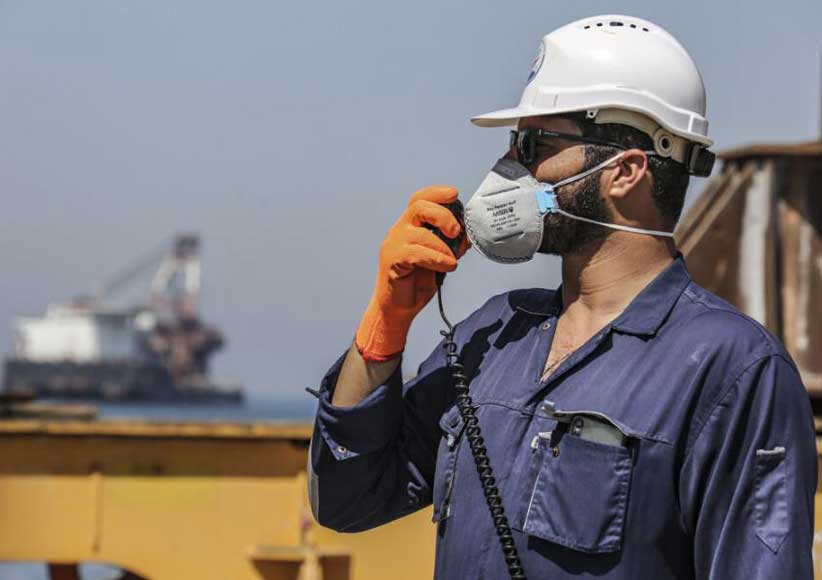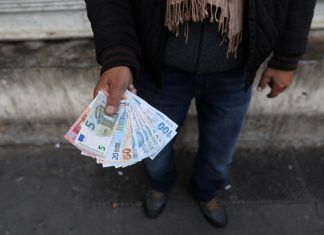Businesses that pose no public health risks and are unlikely to cause the spread of coronavirus can soon reopen under the government’s “smart social distancing” scheme, according to Hossein Modarres Khiabani, the deputy Minister of Industry, Mine and Trade in charge of commerce.
Mr. Khiabani made the comments on the Islamic Republic of Iran Broadcast (IRIB) News Channel’s nightly program “Titr-e Emshab” (Tonight’s Headline) on April 6.
“Labor unions, businesses, and retailers worked closely with the government to make the first phase of the social distancing scheme a success,” Mr. Khiabani was quoted by the Iranian Students News Agency (ISNA), citing the IRIB broadcast, as saying. “The second phase, namely the ‘smart social distancing,’ will enable businesses that do not pose any public health risks to reopen.”
“The second phase does not, however, include businesses that have heavy foot traffic such as restaurants, hair salons, event venues, gyms, and others that attract large crowds,” Khiabani explained. “Shops and retailers that sell essential goods will continue to operate as before.”
“The Ministry of Industry, Iran Chamber of Guilds (ICG), and labor unions have compiled a list of businesses that can operate within the framework of the second phase,” Khiabani noted. “We will gradually add other businesses to the list through a risk assessment process. Business owners and customers must observe the health and hygiene guidelines. They must display these guidelines in their establishments.”
“Labor unions, health authorities, and our inspectors must enforce the new rules,” Khiabani added. “Ultimately, people are responsible for their hygiene habits. They are responsible for their behavior and must take special care to follow the health and hygiene guidelines. They must report any violation of the rules in the workplace or business establishments to the relevant union or government agency.”
[aesop_image img=”https://kayhanlife.com/wp-content/uploads/2019/07/2011-06-29T120000Z_1978028508_GM1E76T1N0901_RTRMADP_3_IRAN-CARS.jpg” panorama=”off” credit=”Reuters./” align=”center” lightbox=”off” captionsrc=”custom” caption=”FILE PHOTO: An Iranian worker carries car parts as he walks near a production line of carmaker Iran Khodro, west of Tehran , Iran. ” captionposition=”left” revealfx=”off” overlay_revealfx=”off”]
During a meeting of the National Headquarters for Fighting Coronavirus on April 5, Iranian President Hassan Rouhani said businesses that did not pose a health risk to the public could reopen on April 11 in all provinces except Tehran.
“It is possible to adhere to health and hygiene guidelines while maintaining a functioning economy,” Mr. Rouhani was quoted by the Islamic Azad University News Agency (ANA) as saying. “Businesses that pose a health risk to the public will remain closed until at least the third week of April. We will assess the situation before moving to the next stage. Gyms, swimming pools, and similar places that attract large crowds will remain closed.”
“Some businesses will reopen in Tehran by April 18 under strict health and hygiene guidelines,” Rouhani noted. “People should still abide by the stay-at-home directive. Those who are infected with the COVID-19 must self-isolate at home.”
During a remote video press conference on April 6, the deputy Health Minister Dr. Alireza Raisi, said: “All businesses that will reopen on April 11 must first register with the Health Ministry and sign an electronic affidavit, promising to abide by the new health and hygiene rules and regulations.”
“We will naturally give priority to works that pose the lowest health risks to the public, meaning that there is less of a chance of employees transmitting the virus to others,” Dr. Raisi noted. “We will heavily rely on the recommendations by the National Headquarters for Fighting Coronavirus. We will also deploy 7,200 health inspectors to monitor these business establishments. The public can report any violations by completing the Health Ministry’s online form 190.”
“The Health Ministry’s website provides a comprehensive health and safety guidelines at the workplace that businesses and labor unions should follow,” Dr. Raisi explained. “We had already issued 50 protocols. We have drafted another 40 with the help of various unions.”
Dr. Raisi said businesses that posed any public health risks, including wedding venues, swimming pools, gyms, and similar places, would remain closed during the second phase of the social distancing scheme.
“We expect people to abide by the stay-at-home directive to protect themselves and their families against coronavirus,” the Interior Ministry’s Spokesman Seyyed Salman Samani told Ettelaat newspaper on April 6. “Labor unions, the police, and the ministry are doing their utmost to enforce the National Headquarters for Fighting Coronavirus’ health and hygiene directive.”
[Translated from Persian by Fardine Hamidi]





